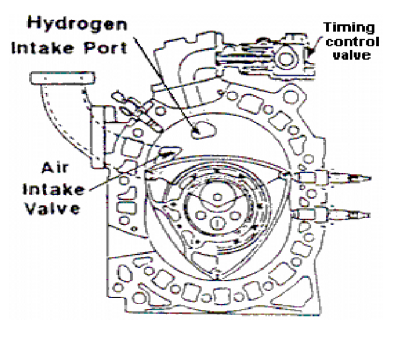Page 1
The following is an extract from the lecture given by Admiral Sir Anthony Griffin to the Maritime Division of the Southampton Institute, Warsash, UK as part of the symposium on the Impact of New technology on the Marine Industries, September 1993.
Water As Fuel
ABSTRACT
The earth's main sources of non-solar energy are fossil fuels, which cause severe pollution and cannot last indefinitely; nuclear, which is capital intensive, and whose waste disposal is problematical; tidal and wind schemes which are inefficient; and thermal and hydro installations which are efficient but lack flexibility and require major capital investment.
An alternative is water (salt, fresh or distilled) as a cheap and inexhaustible source of global energy which has none of the foregoing disadvantages. The theoretical evidence in support of the relevant technology is briefly described and related to the first and second laws of thermodynamics. Practical evidence is illustrated and the impact of this revolutionary development on the marine industries, with ships floating on their own fuel and thus having no need for either bunkers or ambient air, is indicated.
Much wider and global implications for the environment, industry, defence and political stability are discussed.
INTRODUCTION
 In 1972, the Royal Navy examined how the Fleet should be fuelled when current fossil fuels become too scarce, say in the year 2030. They concluded that the fuel of the future was hydrogen but since the gas was not normally available in usable form, it would have to be extracted through either electrolysis of water or nuclear fusion. Neither appeared to be immediately practicable. Electrolysis needed more power than that of the hydrogen it yielded and was too slow a process to meet the demands of an internal combustion
In 1972, the Royal Navy examined how the Fleet should be fuelled when current fossil fuels become too scarce, say in the year 2030. They concluded that the fuel of the future was hydrogen but since the gas was not normally available in usable form, it would have to be extracted through either electrolysis of water or nuclear fusion. Neither appeared to be immediately practicable. Electrolysis needed more power than that of the hydrogen it yielded and was too slow a process to meet the demands of an internal combustion
This meant that it would have to be stored in either liquid form or in a fuel cell, both of which involved substantial weight or safety problems. Nuclear fusion appeared to be too distant and expensive an
This position remains the current generally accepted view of hydrogen as a fuel. It has not however, deterred numerous investors from producing, for example, over 100 hydrogen fuelled cars in the USA, at least 12 in Germany and 3 in the UK. The latest is Japan's Mazda HRX car and its Wankel engine shown here.
